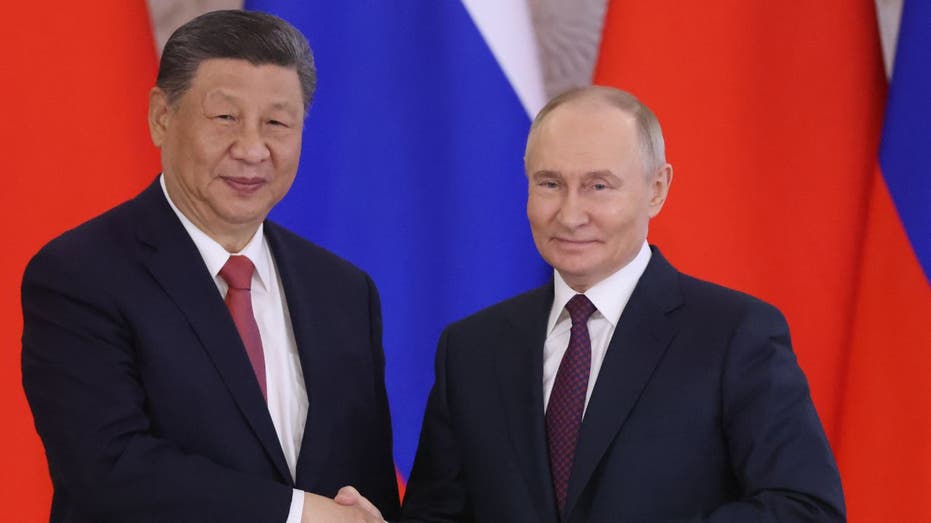

Treasury Secretary Scott Bessent said Monday that China’s dependence on Iranian and Russian oil is a key issue in upcoming trade talks between the world’s two largest economies.
Despite U.S. sanctions, Beijing is the top importer of Iranian oil and the second-largest importer of Russian oil.
Washington has long complained that Tehran and Moscow use the funds from their oil exports to finance terror and other destabilizing actions around the world.

Russian President Vladimir Putin, right, shakes hands with Chinese President Xi Jinping during their meeting at the Grand Kremlin Palace on May 8, 2025 in Moscow. (Contributor/Getty Images / Getty Images)
Bessent said in an interview on CNBC that the Trump administration will address China's oil trade in trade talks "in the very near future."
He did not give additional details on when and where those discussions would take place. Bessent led trade negotiations with the Chinese in Geneva in May and a month later in London.
President Donald Trump has raised tariffs on all Chinese goods several times this year, with the highest duty reaching 145% in April. The current U.S. levy on most Chinese imports stands at 30%. Meanwhile, American goods imported by China face a 10% duty.
"I think trade is in a good place," he said, adding that the administration is now shifting focus to other pressure points in the U.S.-China relationship.
In addition to Russian and Iranian oil imports, Bessent said the U.S. wants to curb China's status as the world's manufacturing powerhouse.
"We could also discuss the elephant in the room, which is this great rebalancing that the Chinese need to do. They have 30% of the world's manufacturing and that can't get any bigger," Bessent said.
He has previously called on China to limit its massive export economy and increase its participation as a global trade partner. This will give the U.S. an opportunity to boost its manufacturing sector.
